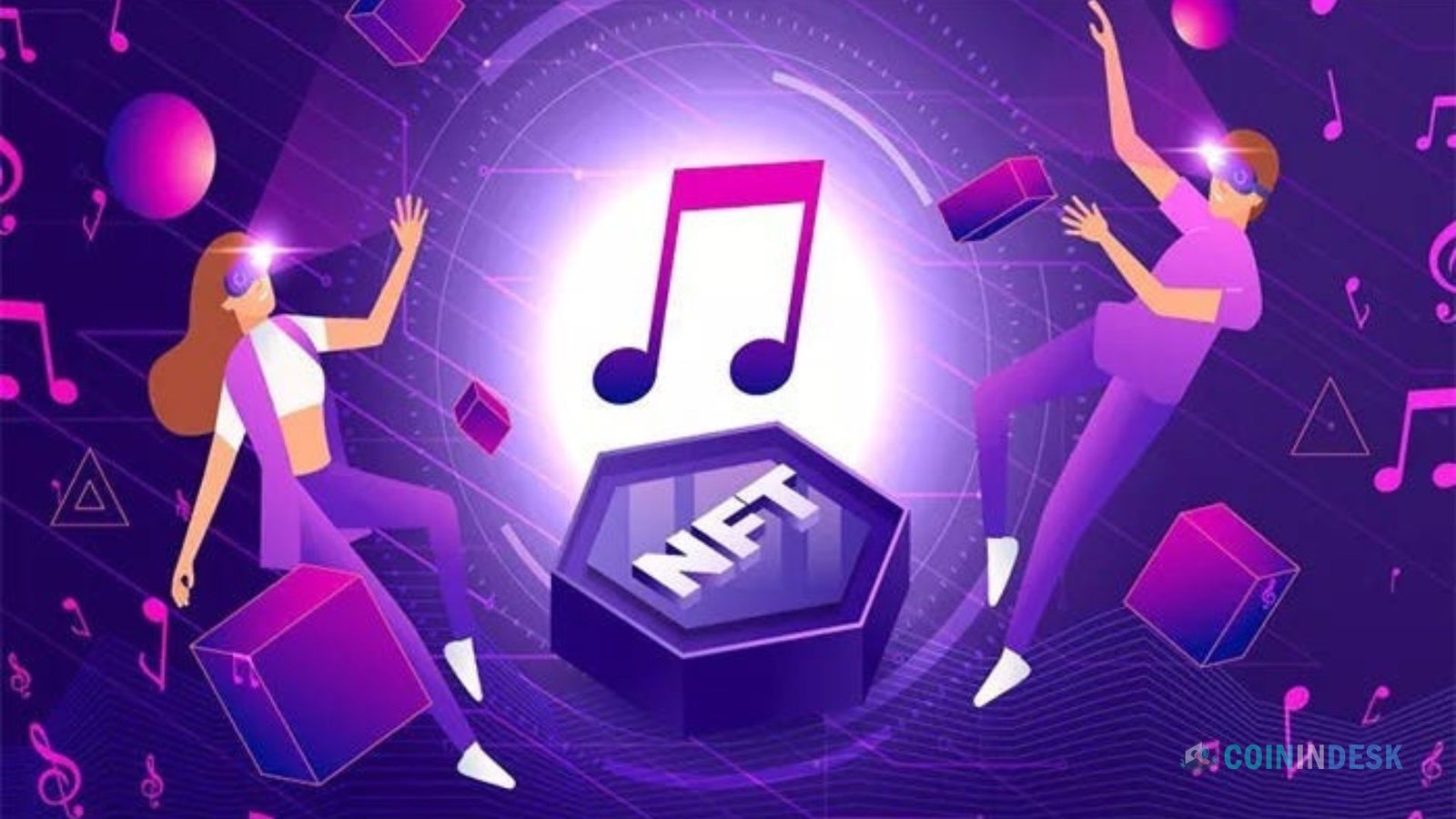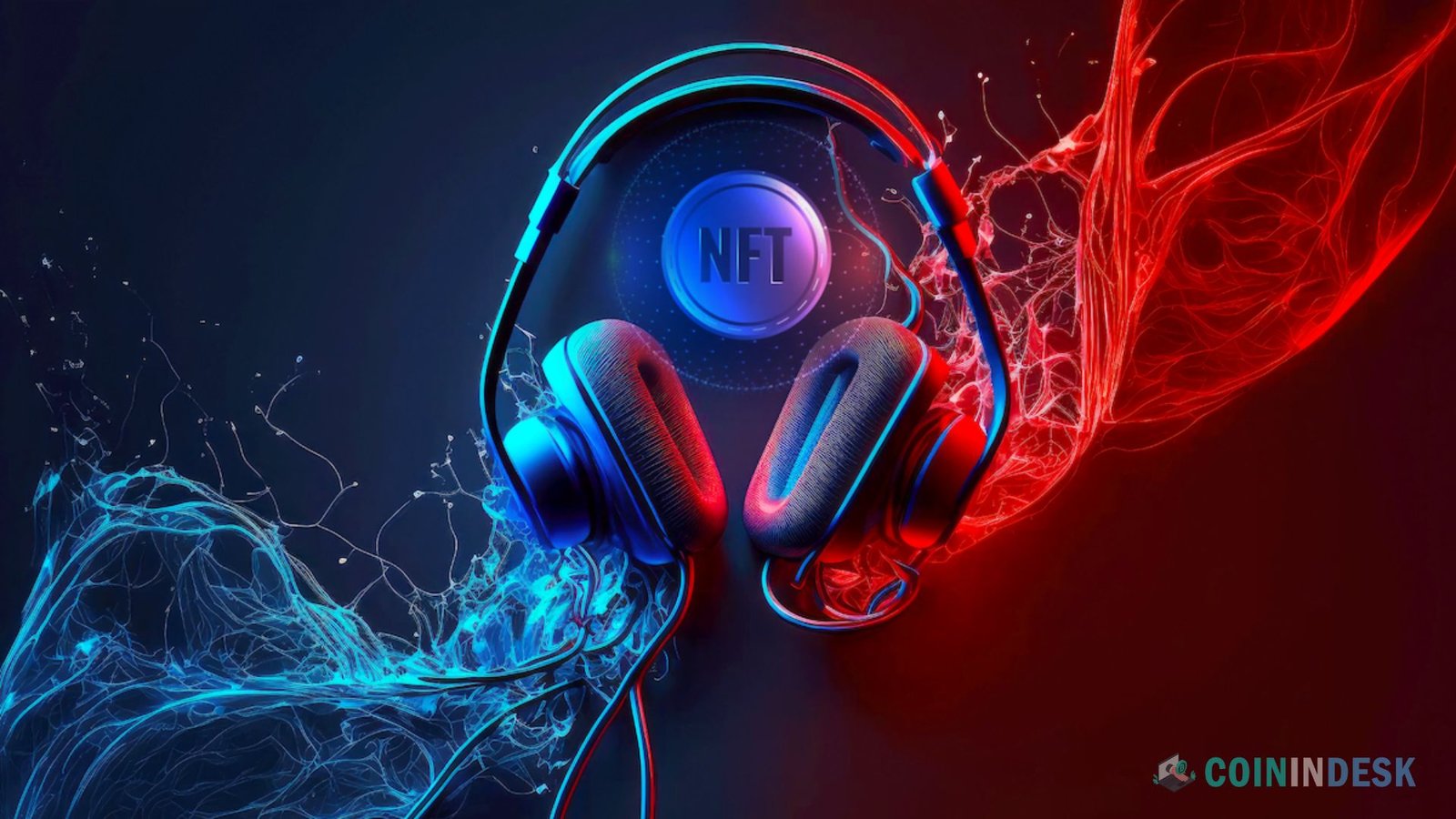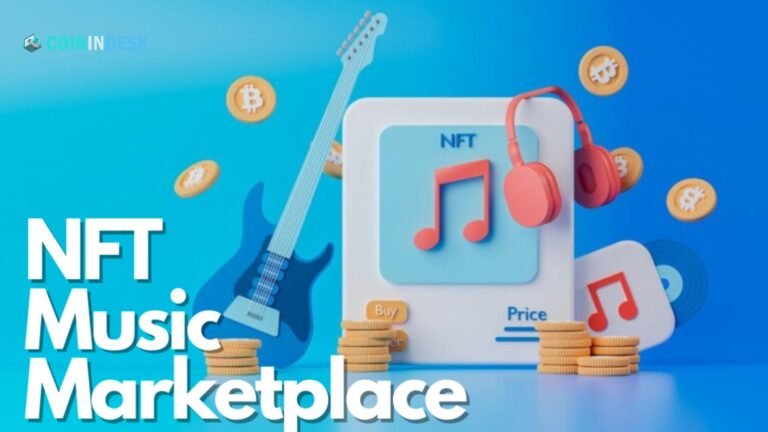Like most other parts of modern life, technological advancements have significantly impacted the music business. There has been a sea change in the music industry due to the proliferation of online music platforms and streaming services. However, a fresh tide has turned the Music NFT Marketplace. The music industry is undergoing a sea change by empowering musicians and music lovers with non-fungible tokens (NFTs). You have found the ideal spot if you want to learn more about this groundbreaking combination of blockchain technology and music. Learn more about Music NFT Marketplaces—what they are, how they function, and why they’re revolutionizing the music industry—with this comprehensive guide.
What is a Music NFT Marketplace?
A Music NFT Marketplace is an online platform where collectors, fans, and musicians may purchase, sell, and trade music NFTs. Non-fungible tokens (NFTs) are distinct digital assets protected by blockchain technology; as a result, each NFT is valuable and cannot be replaced. An example of a Music NFT might be a concert ticket, a collectible, or a piece of music that is digitally saved on the blockchain and serves as evidence of authenticity and ownership for the buyer.
While these marketplaces serve a similar purpose as art NFT platforms, they are designed with the music business in mind. Among the many forms of music-related NFTs are digital albums, limited-edition singles, artwork, and virtual concert tickets. Through the marketplace, musicians may connect with their fans personally, cutting out the intermediaries and granting listeners direct access to unique digital music assets.
How Does a Music NFT Marketplace Work?
The idea behind a music NFT marketplace is that musicians may “mint” their unique musical assets as NFTs and put them up for auction or sale. By purchasing these NFTs, fans may become the proud owners of rare music content. This model encourages two-way communication between artists and their fans by letting them profit from both the original transaction and any resales that may occur.
Minting the NFT
First, a music NFT must be minted into existence. Minting is the process of establishing a one-of-a-kind digital asset on the blockchain. Artists often release exclusive content, such as behind-the-scenes videos, limited-edition singles, or album artwork. Upon minting, this NFT becomes a safe, non-replicable object on the blockchain.
Listing on the Marketplace
A Music NFT Marketplace is where the music NFT minting process occurs. Platforms such as OpenSea and Rarible and specialized marketplaces for music NFTs like Royal and Audius are examples of popular marketplaces. Features and supported blockchains (e.g., Binance Smart Chain, Ethereum, Solana) may vary in each marketplace.
Auctioning or Selling the NFT
You may buy an artist’s NFT directly from them for a set amount, or you can put it up for auction and let fans bid on it. While the artist receives the money (typically less a modest transaction charge), the NFT is sent to the buyer’s digital wallet.
Resale and Royalties
An exciting feature of music NFTs is that musicians can receive a portion of the revenues from the secondary market for their NFTs. With this royalty arrangement, creators get a cut of the profits from both the sale of NFTs and their continued popularity, guaranteeing a steady flow of income for years to come.
Why Are Music NFTs Important for Artists and Fans?
By cutting out intermediaries and facilitating direct sales, music NFTs provide artists more control over their financial futures and the ability to earn royalties on repeat plays. They provide a more personal connection between artists and their fans through exclusive material, souvenirs, and more. They are supporting artists more sustainably and increasing engagement through direct artist-fan interaction.
Empowering Artists with Financial Control
Record labels receive a part of artists’ revenue when they deal with them under traditional music distribution schemes. Using music NFTs, musicians may bypass intermediaries and sell to their audience directly. Through this strategy of selling directly to fans, artists can keep more of their revenues and have more say over how their music is distributed and valued.
Providing Fans with Exclusive Experiences and Ownership
Fans now have a new method to engage with their favorite musicians with Music NFTs. If you own a music NFT, you might be able to get your hands on rare items, early admission to shows, or even unreleased songs. Furthermore, fans gain from being able to trade or sell their NFTs. Which fosters a vibrant community of collectors and superfans who cherish these unique products.
Increasing Transparency and Security
Because NFTs are decentralized and run on the blockchain, all ownership and transaction records are verifiable, safe, and impossible to alter. This approach eliminates intermediaries and lessens the likelihood of fraud and piracy to guarantee that only legitimate copies reach consumers.
Popular Music NFT Marketplaces
OpenSea
OpenSea supports various digital assets, including music NFTs, and is one of the most extensive and diversified NFT marketplaces. Its widespread reach and intuitive interface have made it a favorite among artists exploring the NFT realm.
Royal
Artists may sell ownership interests in their songs on Royal, a music-only NFT platform. If fans want to support their favorite musicians financially, they may invest in their music and get royalties anytime someone streams or uses it commercially. This concept is a win-win for musicians and their fans by facilitating a shared financial investment.
Audius
Artists may distribute and sell their work as NFTs on Audius, a decentralized music streaming platform. Audius, based on the Solana blockchain, allows musicians to bypass intermediaries and sell their music straight to listeners.
Catalog
Artists may distribute and sell their work as NFTs on Audius, a decentralized music streaming platform. Audius, based on the Solana blockchain, allows musicians to bypass intermediaries and sell their music straight to listeners.
The Future of the Music NFT Marketplace
The next big thing in music NFT marketplaces will be interactive digital memorabilia, virtual concerts in the metaverse, and better ways for artists and fans to work together. The future of NFTs is bright, with the possibility of shared royalties, virtual concert access, and interactive experiences made possible by technological advancements. These innovations hold the potential for novel sources of income, more robust fan groups, and revolutionary approaches to listening to and supporting music.
NFTs as Digital Collectibles
We are witnessing the evolution of music NFTs from essential audio files into interactive and immersive experiences as they gain popularity. Artists might use multimedia features like images or gamified experiences to get fans more involved. Because of this, listening to the music becomes an immersive creative experience in and of itself.
The Potential of Metaverse Concerts
As the metaverse expands, more and more people are opting to attend live acts virtually, regardless of location. Virtual concert tickets or VIP passes might be purchased with music NFTs. Virtual music festivals are already taking place on platforms like Sandbox and Decentraland, ushering in a new age of NFTs centered around music.
Artist-Fan Collaborations Through NFTs
NFT technology allows artists to interact with their fans in unique ways. For instance, an artist could sell fractional shares of a song’s royalties to fans, giving them a direct financial stake in the song’s success. This model allows fans to become more than just listeners—they’re now investors and supporters.
Challenges Facing the Music NFT Marketplace
Environmental problems owing to blockchain technology’s high energy consumption, price volatility affecting the value of NFTs, and complicated copyright issues, particularly with joint compositions, are some of the difficulties faced by music NFT marketplaces. Greener blockchain solutions, consumer risk education, and more transparent ownership rights for safer transactions are all ways to alleviate these worries.
Environmental Concerns
It is possible to mint NFTs on blockchains like Ethereum, although it can be energy-intensive and lead to carbon emissions. Many platforms, however, are actively pursuing more environmentally friendly alternatives, such as proof-of-stake (PoS) techniques or eco-friendly blockchains like Solana.
Price Volatility
Particularly for NFTs built on cryptocurrency, their value might fluctuate wildly. Collectors and fans should be mindful that their invested emotional and financial capital in NFTs might undergo substantial fluctuations in value over time.
Copyright and Ownership Issues
Determining unambiguous ownership rights is an issue for Music NFT Marketplaces, mainly when dealing with music that incorporates several collaborators. A potential source of the legal problems is the lack of appropriate license agreements, which might lead to conflicts about the ownership of NFTs.
How to Get Started with Music NFTs
Beginning with a digital wallet (e.g., Phantom or MetaMask), buying cryptocurrency (e.g., Ethereum), and selecting an appropriate Music NFT Marketplace (e.g., OpenSea or Royal) are the steps to begin using Music NFTs. When you’re ready, check out the available music NFTs and buy or bid on unique digital music assets.
Set Up a Digital Wallet
It would be best to have a digital wallet compatible with the marketplace’s blockchain to transact in NFTs on the Music NFT Marketplace. For the Ethereum blockchain, there is MetaMask, and for the Solana blockchain, there is Phantom.
Buy Cryptocurrency
You must acquire some cryptocurrency (like Ethereum or Solana) to participate in most music NFT Marketplaces. Coinbase and Binance are two of the most popular cryptocurrency exchanges where you can purchase and store Bitcoin.
Choose a Marketplace
Think about what you want out of a music NFT marketplace and pick one that fits. While OpenSea provides access to a broader variety of assets, Catalogue and Royal are better options. If you seek unique, one-of-a-kind products.
Read More: How NFT Ticketing Platforms Are Revolutionizing the Industry
Start Collecting and Engaging
Browse music NFTs and buy those that speak to you after you’ve prepared your wallet and cryptocurrencies. You purchase a unique piece of the artist’s creative process with every NFT you are buying.
Conclusion
The Music NFT Marketplace is changing the game regarding making, sharing, and appreciating music. It’s a new frontier for both musicians and music lovers. Music NFTs are changing the game for artists in the digital era by letting them sell directly to fans, keep ownership of their work, and make money even after a song has been released. Fans find a deeper connection to their favorite artists and the music they adore through these markets, providing more than memorabilia. NFTs will have limitless opportunities for innovation, connection, and cooperation as they develop further, and their function in the music business will only grow.
[sp_easyaccordion id=”5428″]


